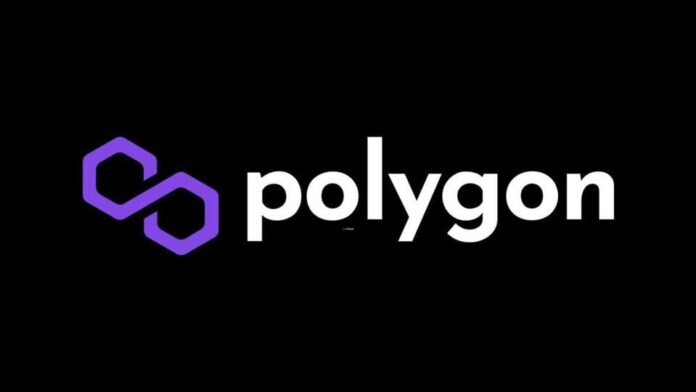- The Polygon network saw a record-breaking increase in daily transactions, going from 2.89 million to 6.1 million in just 24 hours.
- Gas fees on Polygon spiked, with transaction costs rising to over 7,000 Gwei before settling around 400 Gwei, but they remained lower than Ethereum’s fees.
The Polygon network, a prominent Ethereum sidechain, has witnessed a remarkable surge in daily transaction activity. In 24 hours, transactions on the network escalated from 2.89 million to an unprecedented 6.1 million, marking the highest daily transaction count since October of the previous year.
This surge represents a significant network usage milestone, reflecting a growing interest and engagement within the Polygon ecosystem.
Gas Fee Dynamics: A Shift in Costs
Accompanying this surge in transaction volumes was a notable increase in gas fees. In a dramatic shift, average transaction costs on the Polygon network leaped from 100 Gwei to over 7,000 Gwei before settling at around 400 Gwei, according to Polygon Scan.
This volatility in gas fees highlights the dynamic nature of blockchain networks in response to rapid changes in usage patterns. Despite this spike, Polygon’s transaction costs remained significantly lower than those on the Ethereum mainnet, where fees for similar transactions can range between $30 to $50.
The rise in transaction costs particularly affected token swaps on the blockchain. Costs for these operations reached approximately $5, a stark contrast to the network’s usual rates. However, these fees have since moderated to under $0.50, indicating a return to more typical cost structures.
The Advent of PRC-20 Tokens and Market Impacts
A key factor behind this transactional boom is the introduction of a new token standard on Polygon, termed “PRC-20.” These tokens, drawing inspiration from the Ordinals protocol on Bitcoin, these tokens are created using transactional calldata, a departure from the conventional ERC-20 token standard. The PRC-20 tokens, particularly those named POLS, have seen widespread minting, contributing significantly to the increased transaction volumes.
This new token mechanism, echoing the principles of the Ordinals protocol, employs a distinct method of embedding data into individual transactions on the blockchain. Unlike the traditional approach in ERC-20 tokens, PRC-20 tokens utilize transaction calldata to generate unique tokens or NFT-like artifacts within the Polygon network.
The rise in gas fees and the increased transactional activity can be primarily linked to this new wave of PRC-20 token minting. As the demand for block space intensified, users were willing to pay higher gas fees, leading to a competitive environment and higher transaction costs.
Current State and Future Outlook
Despite the recent surge, Polygon offers a more cost-effective solution than the Ethereum mainnet. Although elevated, the current gas fees on Polygon translate to significantly lower costs when compared to Ethereum’s rates. For instance, a gas fee of 4,005 gwei on Polygon equates to approximately $0.08, a fraction of Ethereum’s gas fee costs.
However, the native token of Polygon, MATIC, has experienced a downturn. In the last 24 hours, its value has decreased by 1.95%, with a notable drop in the 24-hour trade volume. This decline reflects the market’s reaction to the recent network activity and gas fee fluctuations. The recent events on the Polygon network underscore the fluid nature of blockchain ecosystems.
Crypto News Flash does not endorse and is not responsible for or liable for any content, accuracy, quality, advertising, products, or other materials on this page. Readers should do their own research before taking any actions related to cryptocurrencies. Crypto News Flash is not responsible, directly or indirectly, for any damage or loss caused or alleged to be caused by or in connection with the use of or reliance on any content, goods, or services mentioned.
Credit: Source link






















 Bitcoin
Bitcoin  Ethereum
Ethereum  XRP
XRP  Tether
Tether  Solana
Solana  USDC
USDC  Dogecoin
Dogecoin  Cardano
Cardano  Lido Staked Ether
Lido Staked Ether  TRON
TRON  Chainlink
Chainlink  Avalanche
Avalanche  Wrapped Bitcoin
Wrapped Bitcoin  Wrapped stETH
Wrapped stETH  Stellar
Stellar  Sui
Sui  Toncoin
Toncoin  Hedera
Hedera  Shiba Inu
Shiba Inu  WETH
WETH  LEO Token
LEO Token  Litecoin
Litecoin  Polkadot
Polkadot  Bitget Token
Bitget Token  Bitcoin Cash
Bitcoin Cash  Hyperliquid
Hyperliquid  USDS
USDS  Uniswap
Uniswap  Wrapped eETH
Wrapped eETH  Ethena USDe
Ethena USDe  Pepe
Pepe  MANTRA
MANTRA  NEAR Protocol
NEAR Protocol  Aave
Aave  Monero
Monero  Ondo
Ondo  WhiteBIT Coin
WhiteBIT Coin  Aptos
Aptos  Internet Computer
Internet Computer  Official Trump
Official Trump  Mantle
Mantle  Ethereum Classic
Ethereum Classic  Dai
Dai  Cronos
Cronos  POL (ex-MATIC)
POL (ex-MATIC)  Bittensor
Bittensor  OKB
OKB 
